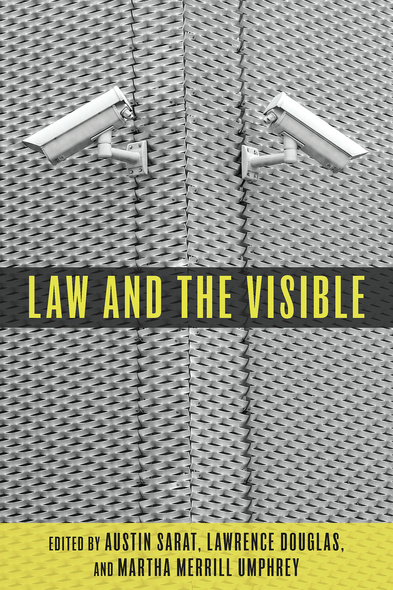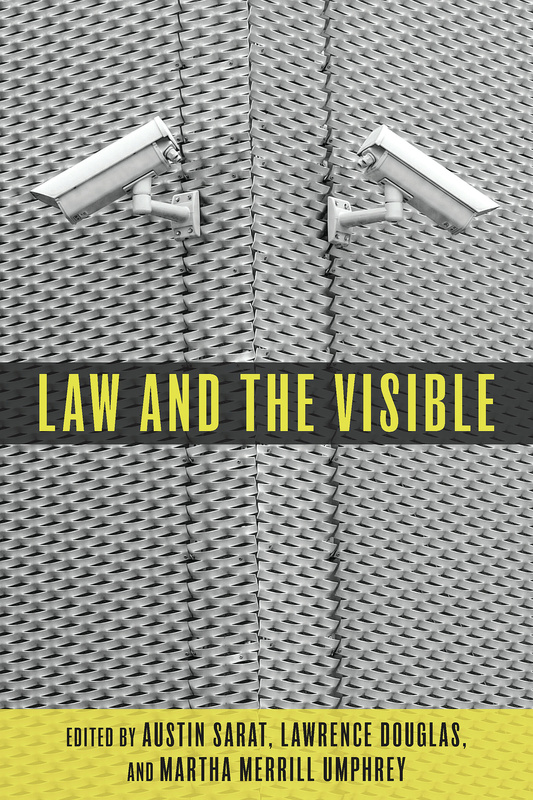Law and the Visible
University of Massachusetts Press
If you take a video of police officers beating a Black man into unconsciousness, are you a witness or a bystander? If you livestream your friends dragging the body of an unconscious woman and talking about their plans to violate her, are you an accomplice? Do bodycams and video doorbells tell the truth? Are the ubiquitous technologies of visibility open to interpretation and manipulation? These are just a few of the questions explored in the rich and broadly interdisciplinary essays within this volume, Law and the Visible, the most recent offering in the Amherst Series for Law, Jurisprudence, and Social Thought.
Individual essays discuss the culpability of those who record violence, the history of racialized violence as it streams through police bodycams, the idea of digital images as objective or neutral, the logics of surveillance and transparency, and a defense of anonymity in the digital age.
Contributors include Benjamin J. Goold, Torin Monahan, Kelli Moore, Eden Osucha, Jennifer Peterson, and Carrie A. Rentschler.
Individual essays discuss the culpability of those who record violence, the history of racialized violence as it streams through police bodycams, the idea of digital images as objective or neutral, the logics of surveillance and transparency, and a defense of anonymity in the digital age.
Contributors include Benjamin J. Goold, Torin Monahan, Kelli Moore, Eden Osucha, Jennifer Peterson, and Carrie A. Rentschler.
Law and the Visible interrogates the broad set of ethical, jurisprudential, and epistemological questions tied to the increasingly universal presence of digital evidence. This is cutting-edge and very smart work by a highly qualified and careful group of scholars.'—John Gilliom, author of Overseers of the Poor: Surveillance, Resistance, and the Limits of Privacy
'[E]ach essay offers a unique perspective that is indeed enriched through the multidisciplinary approach taken up in the edited volume. . . [T]he chapters present nuanced arguments and offer new insights in the area of surveillance studies.'—Surveillance & Society
AUSTIN SARAT is William Nelson Cromwell Professor of Jurisprudence and Political Science and associate provost and associate dean of faculty at Amherst College. LAWRENCE DOUGLAS is James J. Grosfeld Professor of Law, Jurisprudence, and Social Thought at Amherst College. MARTHA MERRILL UMPHREY is Bertrand H. Snell 1894 Professor in American Government at Amherst College.





